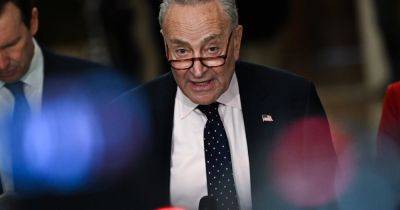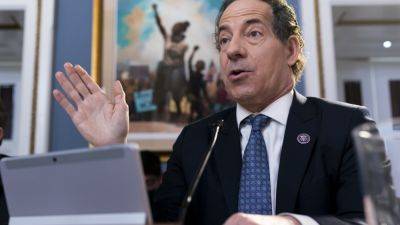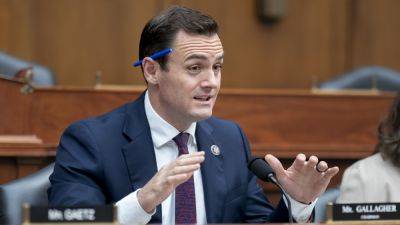GOP congressman corrected after flubbing who signed the Constitution
Democratic Rep. Jamie Raskin of Maryland delivered an impromptu history lesson the House floor Wednesday, correcting Rep. Dan Bishop for mistakenly saying that Thomas Jefferson signed the Constitution.
Bishop, R-N.C., made the error as he tried to counter Raskin's argument during a House floor debate about a bill introduced by Rep. Byron Donalds, R-Fla., that would change criminal sentencing codes in Washington, D.C.
“The Constitution that Thomas Jefferson signed said the Congress shall have power ‘to exercise exclusive Legislation in all Cases whatsoever, over such District,’” Bishop said.
Raskin, who was a professor of constitutional law at American University Washington College of Law before he was elected to Congress, responded by pointing out an error in Bishop’s statement, saying Jefferson did not sign the Constitution.
“I do have to correct my friend in his history, because there might be some students watching this,” Raskin said. “Thomas Jefferson never signed the Constitution. He was, of course, on a diplomatic mission when the Constitution was being signed in Philadelphia, but he did write the Declaration of Independence.”
Raskin had argued that the GOP bill bristled against a core allegation of Jefferson's founding document by “dictating [to] the people in Washington, D.C., how they should order their affairs” on matters of criminal law.
"If you read the Declaration of Independence, Thomas Jefferson set forth a bill of particulars against King George and the Parliament, and one of the central allegations of it was that they were denying the colonists the right to define criminal offenses for themselves," Raskin said.
During Wednesday's floor debate, Donalds had argued that his bill “requires that we treat







